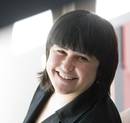Limits
In the interview that archaeologist Joseba Ríos offers us in this issue, he says that scientists have no choice but to cross the border between prudence and innovative ideas. The history of science is replete with discoveries that have been rejected by contemporaries and which have been subsequently tested with correction (even the opposites, which are easier to forget). But considering how scientific knowledge accumulates, it can almost be said that the characteristic characteristic of ideas that have become milestones is that of being born as a "heresy".
Thus, in her autobiography, astronomer Cecilia Payne wrote that "there is no more pleasure than to find something that cannot be understood according to accepted ideas." Payne was one of the scientists who received the reproach of contemporaries, since, as he discovered, the stars were mainly formed by hydrogen and helium in the 1920s. For Rios, one of the great incentives of his work is to have an idea, to work with it and, suddenly, to discover a discovery that makes it revolutionize.
In Payne's words, "seeing that as the horizon rises" is the biggest prize of a scientific career. But behind these seemingly idealistic words there is also tenderness. And it is like the story of a scientist who breaks with the scientific knowledge of the moment, Payne, who had to deal with the limitations imposed by society then on women.
Her professional career and her material life made it difficult for her to be a scientific woman at the time of her career. He wanted scientific papers to be published anonymously. And against what we wanted to think, women still receive a lower valuation. According to the results of a recent research published in the journal PNAS, it is different that John or Jennifer present the same curriculum for a research post. Science is a human activity that, at the border, does not put all limits on knowledge.






